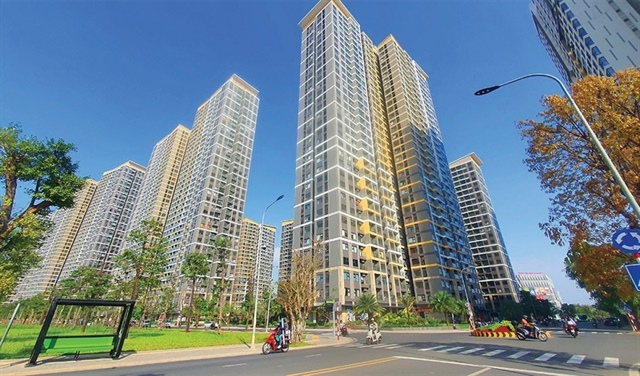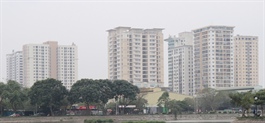Taxation and credit restrictions to combat real estate speculation
Taxation and credit restrictions to combat real estate speculation
More initiatives from the government to develop the real estate industry, particularly taxation and credit limitation, are believed to lay a foundation for curbing land speculation, maximising residential properties and creating a set of diversified financing options.
The government issued Decision No.2161/QD-TTg dated December 22, approving the National Housing Development strategy for the next ten year.
In the decision, Prime Minister Pham Minh Chinh requested the Ministry of Finance (MoF) to propose some additional taxes relating to the real estate market, such as property tax on housing, in order to stabilise the market, limit speculation, and effectively make use of residential real estate.
In addition, the PM assigned the MoF to assume the prime responsibility of studying policies to encourage the diversified development of long-term capital sources for housing development. Possible solutions can be in the form of real estate investment funds/trust funds, corporate bonds, and other financial instruments.
Le Hoang Chau, chairman of Ho Chi Minh City Real Estate Association, agreed with the government's orientation in introducing taxes to limit speculation and increase transparency for the real estate market.
Since 2017, the real estate market has experienced multiple waves of land fever, during which speculators team up with brokers to blow prices and lure investors to join the market, Chau claimed. When land fevers pass, these individual investors suffer heavy losses; many even fall into debt. Large areas of land become deserted, while middle and low-income residents in urban areas lose their only opportunity for homeownership.
Investors in land fevers face large losses as the fever subsides; many may go into debt as a result. As a result, vast tracts of land are left fallow, while residents in metropolitan areas with moderate to low incomes lose their only option for homeownership.
Therefore, market watchdogs deem it necessary to impose high taxes on selling or re-transferring houses and land to eliminate the intent of speculation. They also believed uncultivated or underutilised real estate projects need a hefty levy.
Credit restrictions are envisaged to be an effective approach. Under the current policy, a person who possesses 30 per cent of the value of a piece of real estate can get a loan from the bank for the remaining 70 per cent.
In other nations, the credit amount for the property sector may be restricted to 50 per cent in the event of a real estate bubble danger, and to only 35 per cent in some extreme cases.
Likewise, experts encourage Vietnamese policymakers should adopt the same policy adjustment to rein speculation and prevent housing bubbles.
"In the first year, real estate transactions will be subject to a high level of taxation. For a new tax rate to revert to its previous level, it typically takes three years. Those who own houses and land but do not use them for living, commercial or production purposes are liable to a progressive tax rate depending on the number of houses and land owned,” Chau stated.
To prevent speculation, Chau also recommended taxing those who take a long time putting land to use.


























